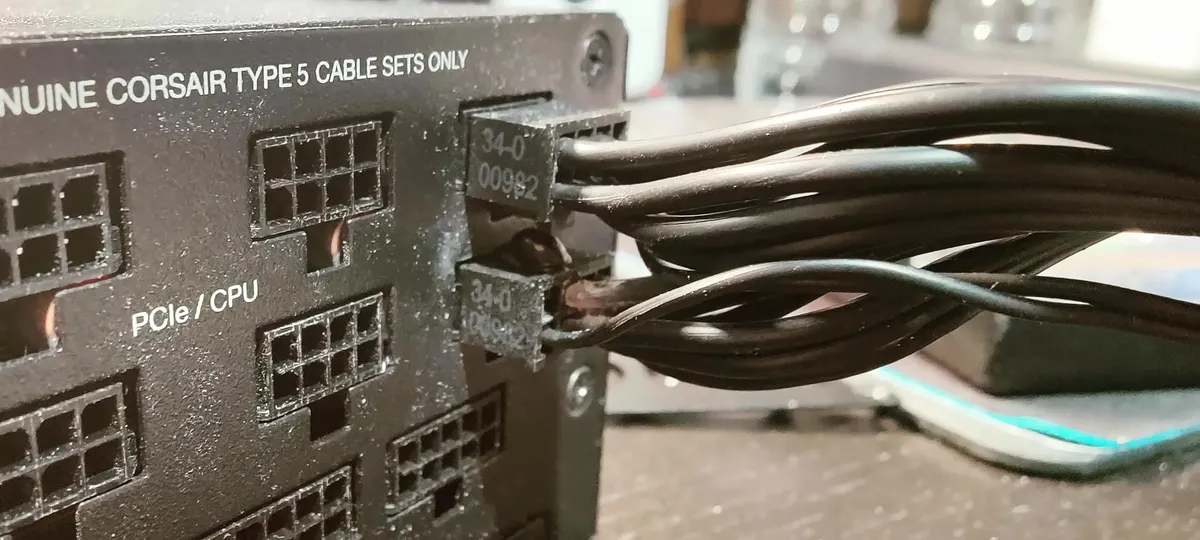
In a shocking turn of events, users who managed to secure the highly sought-after RTX 5090 graphics card for over $3,000 are facing serious issues with melting connectors. Reports have emerged of incidents involving the card's connectors and cables suffering from burn damage, leading to growing concern among the gaming community.
The most recent case was shared by a Reddit user known as Roachard, who purchased the MSI RTX 5090 Gaming Trio OC from Best Buy for just over $3,000 about a month ago. Roachard paired this high-end graphics card with a Corsair SF1000L power supply unit (PSU) and an Asus Strix B650E-I motherboard. The Corsair SF1000L is an 80 Plus Platinum, ATX 3.0-compliant PSU, retailing for $230 on Amazon, and is considered a reliable choice for high-performance builds.
Roachard reported that the 12VHPWR cable was plugged directly into the PSU without any extensions, and he was not overclocking the RTX 5090. Initially, he believed the damage was confined to the GPU side, affecting both the cable and card connectors. However, he later discovered that the PSU end also exhibited significant damage. There was a concerning bulge in the connector plugged into the power supply, where the plastic had melted, revealing a cable that had burned and turned white.
This incident is not isolated; there were earlier reports of cables melting when used with the RTX 5090. In February, another user experienced similar issues, where a third-party cable from Moddiy was believed to have caused damage to both the graphics card and the PSU. Despite Moddiy claiming their product supports up to 600W with the newer 12V-2X6 design, issues have persisted.
Interestingly, Roachard used the original 12VHPWR cable that came with his PSU, which is rated for 600W. He assumed that sticking to original cables would mitigate the risk of such problems, but this incident proves otherwise.
The growing number of reports regarding melting cables and connectors in the RTX 5090 is reminiscent of the widespread issues experienced with the RTX 4090. Many of those problems stemmed from the 12VHPWR cable not being fully inserted due to its stiffness, prompting NVIDIA to release an updated 12V-2x6 cable design.
Earlier this year, renowned overclocker Der8auer replicated one of the RTX 5090 melting incidents using a Corsair 12VHPWR cable. His findings revealed that the connectors reached alarming temperatures, with the PSU side hitting 150°C and the GPU side close to 90°C. This overheating resulted from an uneven distribution of power, where some wires designed to carry only 5 to 6 amps were overloaded with over 20 amps each, while others were carrying as little as 2 amps.
The incidents involving the RTX 5090 serve as a cautionary tale for gamers and PC builders alike. As the demand for high-performance graphics cards continues to rise, ensuring compatibility and safety with power supply units and cables is crucial. Users should remain vigilant and consider potential risks when investing in such expensive hardware.